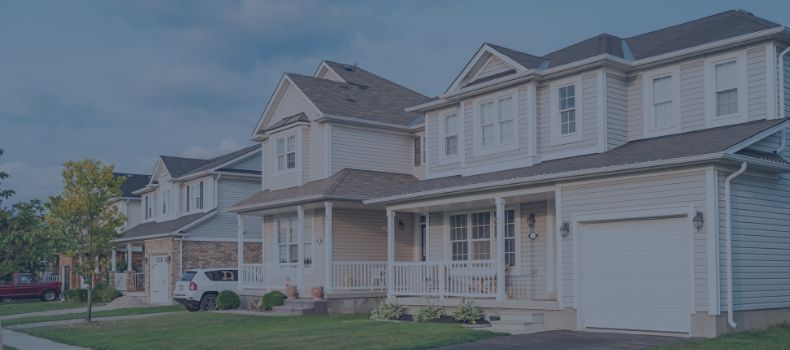Building Better Landlord-Tenant Relationships Through Rights and Responsibilities
In this article
Introduction
Landlord-tenant relationships often feel tense. Misunderstandings over rent payments, repairs, or simple miscommunications can create conflict. But it doesn’t have to be this way. Building better landlord-tenant relationships in Central Ontario starts with understanding each other’s rights and responsibilities. When both landlords and tenants work together with mutual respect and clear communication, the renting experience becomes smoother and more productive.

Let’s Start with the Basics
One major source of conflict is unclear communication. Tenants might feel that maintenance issues are not addressed quickly enough. Landlords, on the other hand, may think tenants are not taking proper care of the property. These problems usually occur when expectations are not clearly defined.
Knowing your rights and responsibilities sets the stage for healthy interactions. For example, tenants should know the reasonable timeline for repairs, and landlords must understand their specific upkeep obligations under Ontario rental law. Transparency from the start can prevent many disputes.
Pro tip for tenants: Read your lease carefully before signing. If anything is unclear, ask questions immediately.
Pro tip for landlords: Provide a well-documented lease that clearly outlines responsibilities and explain it to new tenants. This simple step can prevent significant misunderstandings down the road.
Why It’s Important
For tenants, understanding your rights means more than expecting your home to be safe, clean, and well-maintained. It includes knowing your right to privacy and protection from unfair treatment. At the same time, fulfilling your responsibilities—like paying rent on time and maintaining the property—builds trust.
For landlords, it’s not just about following the law; it’s about creating a positive living environment. This involves responding promptly to maintenance requests, ensuring the property is habitable, and respecting tenants’ privacy. Landlords also expect tenants to meet their obligations, such as reporting issues promptly and adhering to community rules.
When both parties honor their responsibilities, trust grows, and minor issues are less likely to escalate into major conflicts.
What Causes Problems?
Many common disputes arise from two main issues:
Confusing Agreements
If lease terms are unclear or overly complicated, misunderstandings are almost inevitable. For instance, if it’s not specified who’s responsible for lawn care or minor repairs, these small gaps can lead to disagreements.
Poor Communication
When issues like leaking pipes or late payments aren’t communicated early, they can snowball into bigger problems. A tenant might feel ignored if a repair request is delayed, while a landlord might feel disrespected if rent is consistently late without explanation.
These challenges are frustrating but not insurmountable. Clear agreements and open dialogue can go a long way toward preventing such problems.
Example: Imagine a tenant discovers mold in the bathroom but delays reporting it, thinking it’s a minor issue. Over time, the mold worsens and requires costly remediation. The landlord, feeling blindsided, may become frustrated. Early reporting and prompt action could have prevented this escalation.
How to Make Things Better
Improving relationships doesn’t require monumental changes. Small, consistent actions can make a big difference. Here are some practical steps:
- Know the Rules: Both landlords and tenants should familiarize themselves with their lease agreements and local rental laws. For example, understanding what constitutes reasonable wear and tear can prevent disputes. Learn more about your legal rights on the Government of Ontario’s housing page.
- Talk Openly: Honest and respectful communication is essential. If there’s a problem, address it as soon as possible. For instance, if a tenant struggles with rent, discussing it early could lead to a manageable plan instead of an eviction notice.
- Be Proactive: Landlords should keep up with property maintenance and conduct regular inspections (with proper notice). Tenants should report issues promptly and follow lease terms.
- Document Everything: Whether it’s a repair request or a rent payment, maintaining records can protect both parties if disputes arise. Digital communication tools make it easier than ever to keep accurate records.
Building Trust Through Mutual Respect
Mutual respect is the cornerstone of a strong rental relationship. It is built through actions that show care and consideration. For landlords, responding to maintenance requests promptly and taking tenant concerns seriously is key. For tenants, paying rent on time and treating the property with respect lays the groundwork for trust.
Example: In one community housing project, a landlord adopted an open-door policy for tenants to discuss concerns directly. This approach resolved many issues before they grew and fostered a sense of community and trust. Similarly, tenants who collaboratively organize maintenance reports help landlords address multiple issues efficiently.
Moving Forward
Imagine a rental experience where everyone works together. Problems get solved quickly, payments are made on time, and respect flows naturally between landlords and tenants. This kind of relationship isn’t just ideal—it’s attainable with clear expectations and open dialogue.
Ask yourself: What can I do today to improve this relationship? Can I clarify expectations, open a line of communication, or take proactive steps to prevent issues? Start by learning your rights and responsibilities. If you need help, don’t hesitate to reach out. Together, we can create a renting experience where everyone feels heard and valued.
For more detailed guidance, you might also explore our related content on Why Belleville, Ontario, Is a Great Place for Rental Investments and How to Increase the Value of Your Rental Property in Belleville, Ontario.
Conclusion
Improving landlord-tenant relationships in Central Ontario starts with understanding and respecting each other’s rights and responsibilities. When communication is clear and expectations are set from the beginning, many common conflicts can be avoided.
At Blue Anchor Property Management, we are committed to helping both landlords and tenants build positive, lasting relationships. Our expertise in property management and our focus on transparency and respect ensure that every rental experience is smooth and rewarding.
If you’re ready to build a better relationship with your tenants or need advice on managing your property, reach out today. Visit our Contact Us page for a free consultation and personalized guidance.
